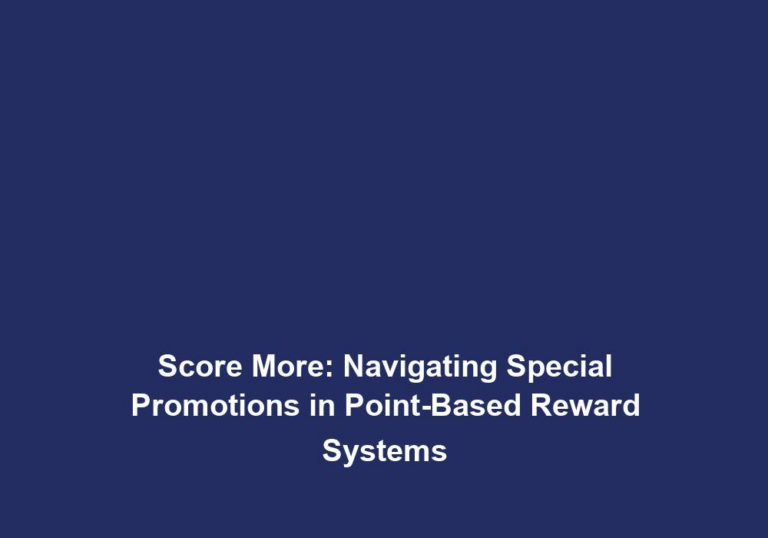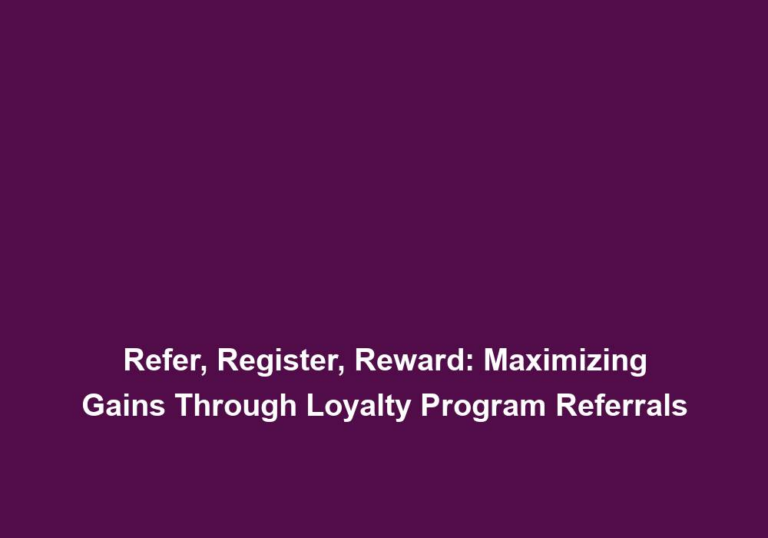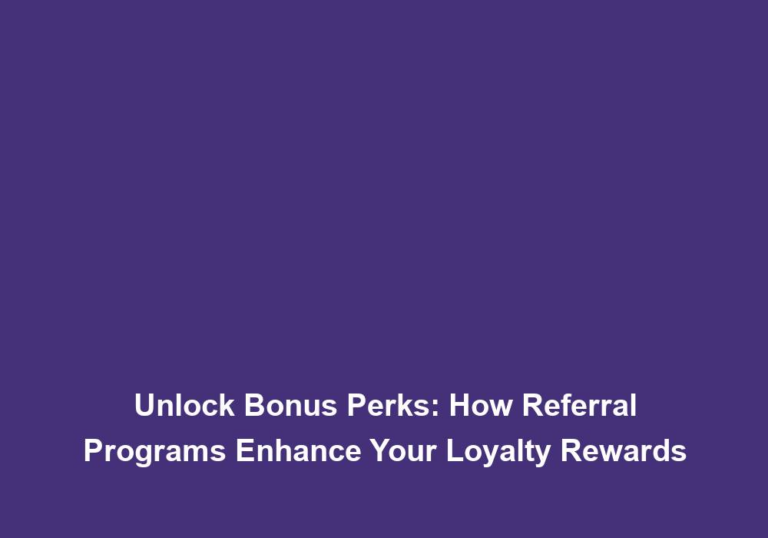Earning Health: The Benefits of Point-based Rewards for Patient Loyalty
In today’s healthcare landscape, patient satisfaction and loyalty are paramount, leading to the exploration of innovative strategies to enhance the patient experience. One such strategy gaining significant traction is the implementation of point-based reward programs. These programs offer patients the opportunity to earn rewards for their loyalty and engagement, thereby incentivizing positive behaviors and fostering a stronger bond with healthcare providers. In this article, we will delve into the various benefits of point-based rewards for patient loyalty, highlighting how they can revolutionize the healthcare industry.
Building Patient Engagement
One of the primary advantages of point-based rewards is their ability to drive patient engagement. By gamifying the healthcare experience, patients are encouraged to actively participate in their own well-being. This engagement can be fostered through various means, such as completing health-related surveys, attending regular check-ups, adhering to prescribed medication routines, and actively utilizing digital health tools.
- When patients complete health-related surveys, healthcare providers gain valuable insights into their needs and preferences, enabling them to tailor care plans accordingly.
- Regular check-ups are essential for preventive care, and by offering points for attending these appointments, patients are motivated to prioritize their health and catch potential issues early on.
- Adhering to prescribed medication routines is crucial for effective treatment, and by rewarding patients for medication adherence, healthcare providers can improve patient outcomes and reduce the risk of complications.
- Encouraging patients to actively utilize digital health tools, such as mobile apps for tracking their health data, empowers them to take control of their well-being. By incentivizing their engagement with these tools, healthcare providers can enhance patient self-management and promote better health outcomes.
Promoting Healthier Lifestyles
Point-based rewards have the potential to promote healthier lifestyles among patients. By offering incentives for engaging in activities such as exercise, healthy eating, and stress management, healthcare providers can encourage individuals to adopt healthier habits.
- Patients can earn points for participating in fitness challenges, which not only motivates them to exercise regularly but also fosters a sense of community and friendly competition.
- Attending nutrition workshops can educate patients about healthy eating habits, and by rewarding their participation, healthcare providers can reinforce the importance of a balanced diet.
- Tracking daily steps through wearable devices can encourage patients to be more physically active and achieve their fitness goals. Offering rewards for reaching milestones or setting new personal records can further motivate them to prioritize their physical well-being.
- Implementing stress management programs, such as mindfulness workshops or relaxation techniques, and rewarding patients for their active involvement can help reduce stress levels and improve overall mental health.
By incentivizing these activities, healthcare providers not only benefit the patients themselves but also contribute to the overall improvement in population health.
Enhancing Patient Satisfaction
Patient satisfaction plays a pivotal role in shaping the success of healthcare organizations. By implementing point-based rewards, providers can enhance overall patient satisfaction. The sense of appreciation and recognition that comes with earning rewards can significantly impact a patient’s perception of their healthcare experience.
- When patients receive points for their loyalty and engagement, they feel valued and appreciated by their healthcare provider. This recognition strengthens the patient-provider relationship and fosters a positive patient experience.
- The ability to redeem earned points for valuable incentives, such as discounts on future medical services or wellness products, adds an extra layer of satisfaction. Patients appreciate the tangible benefits they receive as a result of their loyalty and engagement.
By increasing patient satisfaction through point-based rewards, healthcare providers can improve patient retention rates and generate positive word-of-mouth referrals, contributing to their long-term success.
Strengthening Patient Loyalty
In an increasingly competitive healthcare market, patient loyalty is of utmost importance. Point-based rewards have the potential to foster long-term loyalty among patients. By consistently offering incentives and personalized rewards, healthcare providers can create a unique and memorable patient experience.
- Regularly rewarding patients for their loyalty and engagement makes them feel valued and appreciated, strengthening their bond with the healthcare provider. This emotional connection enhances patient loyalty and reduces the likelihood of patients seeking care elsewhere.
- Personalized rewards, tailored to individual patient preferences and needs, further enhance the patient experience. By demonstrating a deep understanding of their patients, healthcare providers can create a sense of exclusivity and build stronger relationships.
By investing in point-based reward programs, healthcare providers can establish themselves as leaders in patient-centered care and drive long-term loyalty among their patient base.
Improving Health Outcomes
Point-based rewards not only benefit patients in terms of engagement and satisfaction but can also lead to improved health outcomes. By incentivizing behaviors that contribute to better health, such as medication adherence and regular preventive screenings, healthcare providers can positively impact disease management and prevention.
- Patients who are rewarded for medication adherence are more likely to take their prescribed medications as directed, resulting in better control of chronic conditions and reduced hospital readmissions.
- Encouraging patients to undergo regular preventive screenings, such as mammograms or blood pressure checks, through point-based rewards can help detect diseases at an early stage and improve treatment outcomes.
- By incentivizing behaviors that promote disease prevention, such as getting vaccinated or engaging in healthy habits, healthcare providers can reduce the burden of preventable illnesses and lower healthcare costs.
By leveraging point-based rewards, healthcare providers can empower patients to actively participate in their own care and achieve improved health outcomes.
Leveraging Data Analytics
Another significant advantage of point-based reward programs is the opportunity to gather valuable data insights. By tracking patient participation, engagement levels, and reward redemption patterns, healthcare providers can gain a deeper understanding of patient preferences and behaviors.
- Analyzing patient participation in different reward activities allows healthcare providers to identify which incentives resonate most with their patient population. This knowledge enables them to refine their reward offerings and make them more effective in driving patient engagement.
- Understanding patient engagement levels helps healthcare providers identify areas where additional support or resources may be needed. For example, if patients are not actively utilizing digital health tools, providers can offer personalized guidance to encourage their adoption.
- By analyzing reward redemption patterns, healthcare providers can identify trends and preferences among their patients. This data can inform the development of targeted interventions and personalized care plans, ultimately improving patient outcomes.
The integration of data analytics into point-based reward programs enables healthcare providers to make data-driven decisions that benefit both patients and the organization.
In conclusion, point-based rewards for patient loyalty have emerged as a powerful tool in the healthcare industry. By fostering patient engagement, promoting healthier lifestyles, enhancing satisfaction, strengthening loyalty, improving health outcomes, and leveraging data analytics, these programs have the potential to revolutionize the way healthcare is delivered. As healthcare providers increasingly prioritize patient-centered care, adopting point-based reward programs can be a wise investment that yields both short-term benefits and long-term success.







